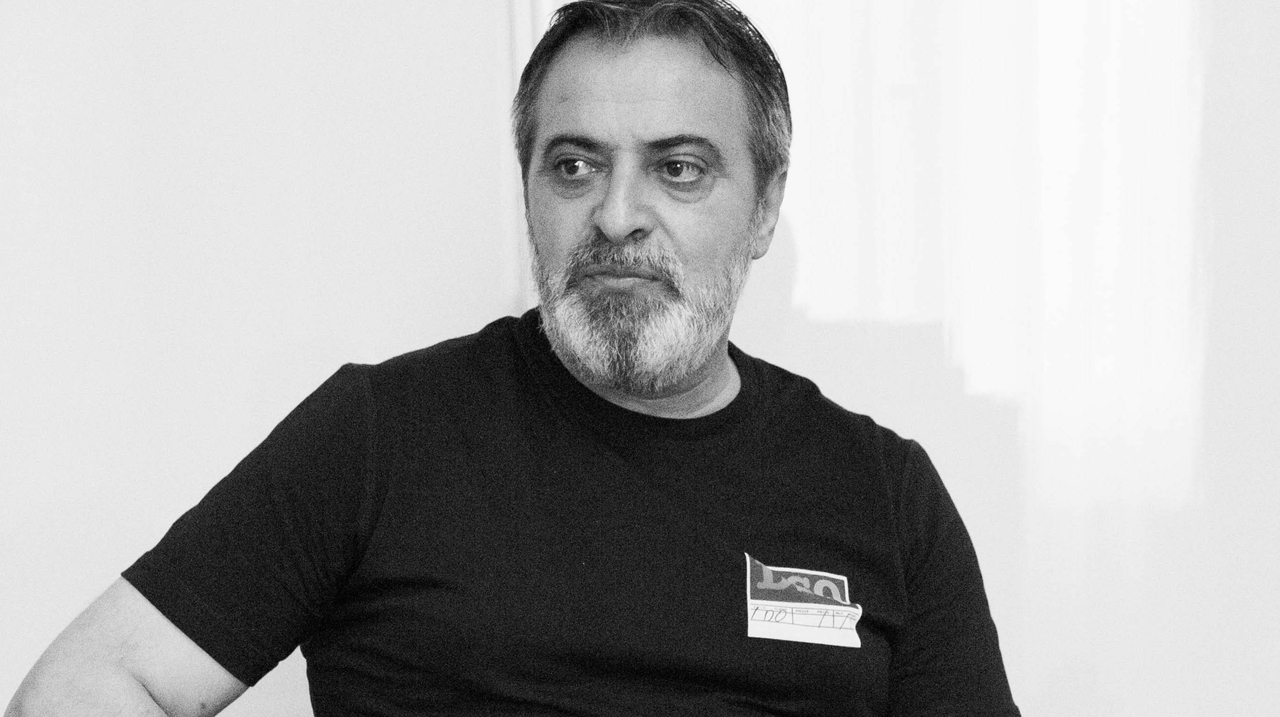Written by:
Edited by:
Share article:
The present
His album Cântece țigănești is an example of professionalism, from the both vocal and orchestral points of view. Moreover, all 10 songs on the album are sung in Romani language. At the beginning of the ‘90s, Dan Armeanca was very hyped in Romania, as one of the most widely acclaimed wedding music singers. Despite his success, he decided to leave Romania for Canada. He was considered the “founding father” of manele, as during his career in the ‘90s Adrian Minune was just a child, and nobody had heard of Florin Salam yet. He was the king of wedding music and practically the inventor of the contemporary music style practiced by today’s manele singers.
Last year he got back to Romania. We got in touch with Dan Armeanca to find out what he's currently doing, but also to learn a bit more, right from the source, about the manele and wedding music.
Tell us what you’re doing now; you’re back from Canada and fully booked. How’s it going?
Dan Armeanca: The rehearsals for the upcoming shows and gigs are the most important. At the same time, I’m also working on another project. A big band. An orchestra consisting of 15 musicians. This is all so far. I hope that in autumn the project will be accomplished.
Do you compose new music?
DA: New music, yes, I’m composing some pieces in tune with what’s being played now. I’m interested in what’s happening now, I want to be up-to-date.
How do you see the current situation?
DA: Professionally, not much has changed. There are numerous manele orchestras, at least 10. The sound has changed a bit, in comparison as to how it was when we started. The gear is more advanced…everything changed from this point of view. But in terms of melody, not much has changed.
And do you intend to make a change?
DA: Of course. I will reach a style sung more in Romani language and more modern pieces. More musicians will be sustaining this; there will be a bigger band. With a lot of work, anything can be accomplished.
Why haven’t you been singing in Romani lately?
DA: Because this was the trend. Actually, they translated the songs that I had composed, and are singing them in Romanian. I was singing them in Romani, and they are playing them as they’re being played nowadays. There hasn’t been much change since I had left and until I came back.
Do you think the sound has been evolving in terms of quality? Leaving the technology behind, which let’s say has helped, do you think contemporary musicians are doing their best?
DA: They’re very good instrumentalists, I don’t want to speak in any other way about them, but the sound is also defined by the tuning of the instruments. The problem is that they play very loudly, at the loudest volume. The gear is great, unlike before. But there isn’t an equilibrium in the sound, in the song…you play it very it loudly and then you cannot distinguish the synth, the tune, the timbre…or a violin, this is what’s going on. They’re playing with a fantastic force.
And how do you explain this tendency of blasting it?
DA: This is probably what the generation of today desires. They are accustomed to this now. If it were for you to play a bit more elegant and in the manner you should be playing, they wouldn’t react positively. This is bothering me very much. I’ve always played in a balanced, dosed manner…and now it’s not fashionable anymore. It’s changed; it’s been at least 25 years since then. I wish with all my heart to play the way you play it anywhere around the world. There is no place in the world with such a sound, maybe on the stadium, and there it’s not bothering anyone. But in a restaurant hall with maybe 100 people…there are thousands of speakers, and you realize, it’s too much. This is bothering me, the sound quality. The orchestras sound good, they’re very good instrumentalists, music school graduates, nothing to object here. But it depends on every player’s sense as an orchestra. If I dose the sound the right way, I respect the other musician. You have to have respect in a group. This is where the sound comes from. I play loud, he plays louder to be heard, etc.
Ștefan: This is his advice when he studies with the band: he makes the members get along between them.
DA: But this is fashionable now…it’s another generation. They want it really loudly. There are older people for example who place themselves next to the speakers, and at some point they leave, because of the volume. But the young ones aren’t bothered at all.
I noticed you have an orchestra of young people.
DA: Yes, of course. I have an orchestra of young people so I can keep up with them.
How did you choose them? How did you reach them?
DA: The orchestra was nearly done, it was my son Elis’s orchestra, which I took over. Initially I wanted to pick up the orchestra I used to work with, and complete it, but the youngsters told me it’s more useful and handy to me to take them, already formed. This was a good thing for me as well. They have other mentalities, they’re young, they’re different. I’m thinking of making a change with them too, taking who remained from the old members and go to the music high school and pick some wood windists. There’s a lot of work, anyhow. I get along with them, but they get into quarrels starting even from a harmless joke, and it affects me a lot as well, because they divide into groups and don’t get along while playing. This is affecting me. But this is their mentality, they’re not the only ones, everyone is the same.
Are the young ones willing to play in a different manner?
DA: They’re anxious, young, rebellious. Sometimes you have to glue yourself to the phone to wake them up. A rehearsal is a rehearsal, when you decided for a time; you have to be there. A walk is a walk. Professionally, there are some things of great importance in an orchestra. Before, we would share a salami slice with 5 people, with a slice of bread, but when it came to rehearsals, you rehearsed. There are a lot of jokes, they’re not paying attention, it’s difficult…but I will take care of it.




